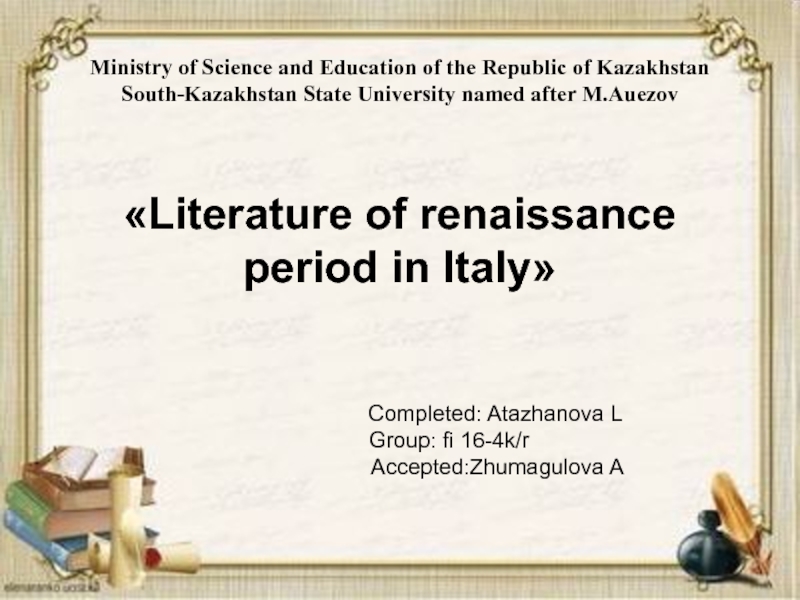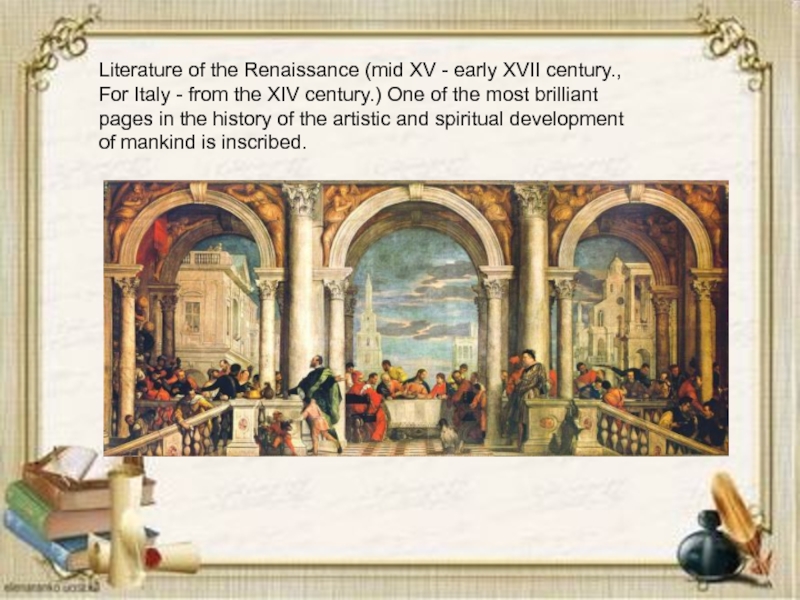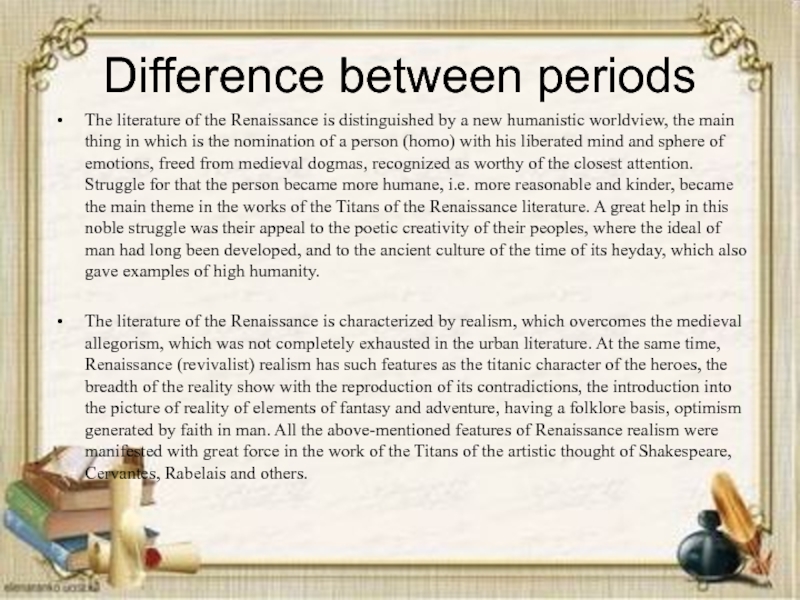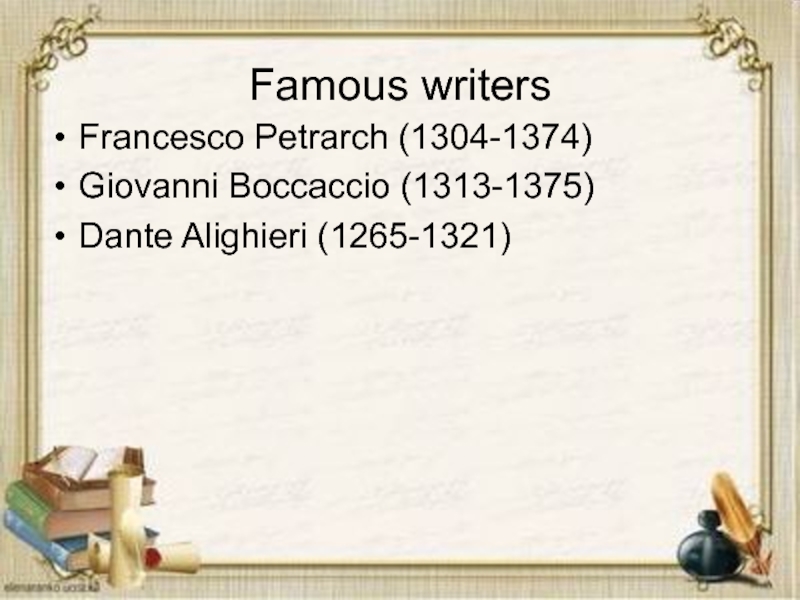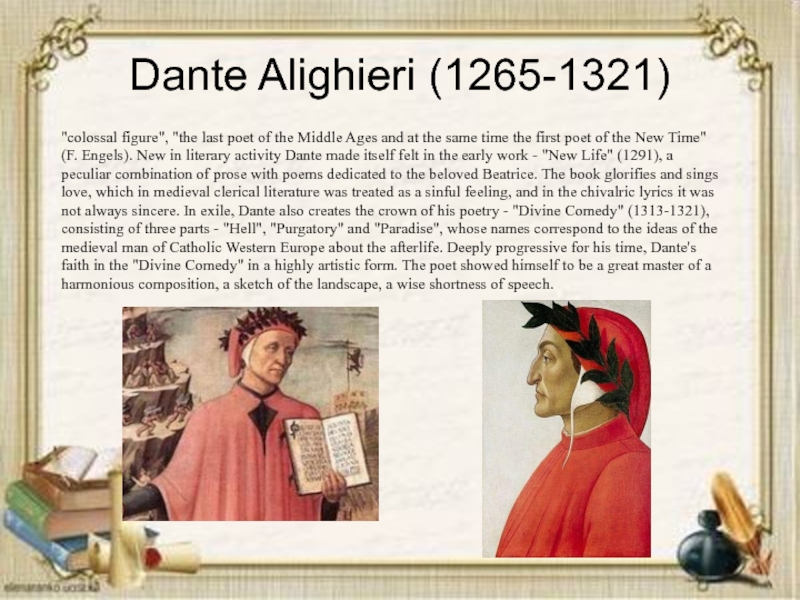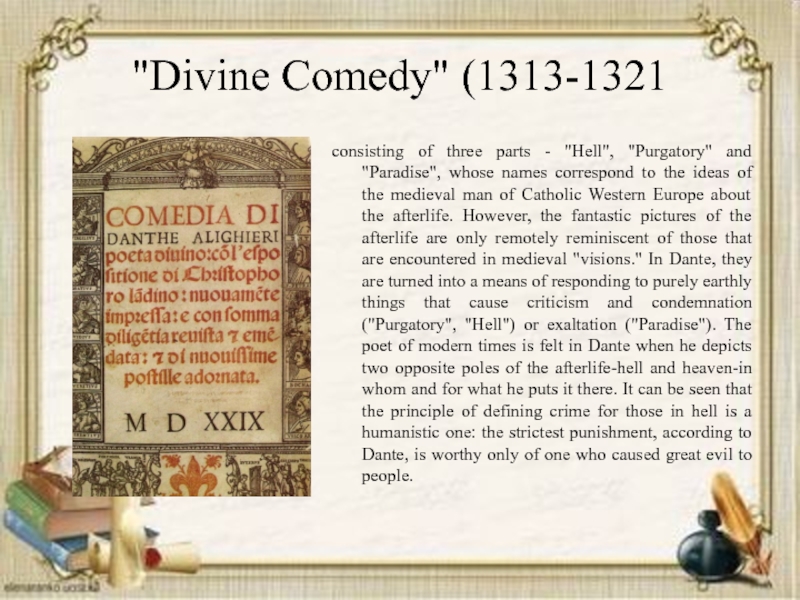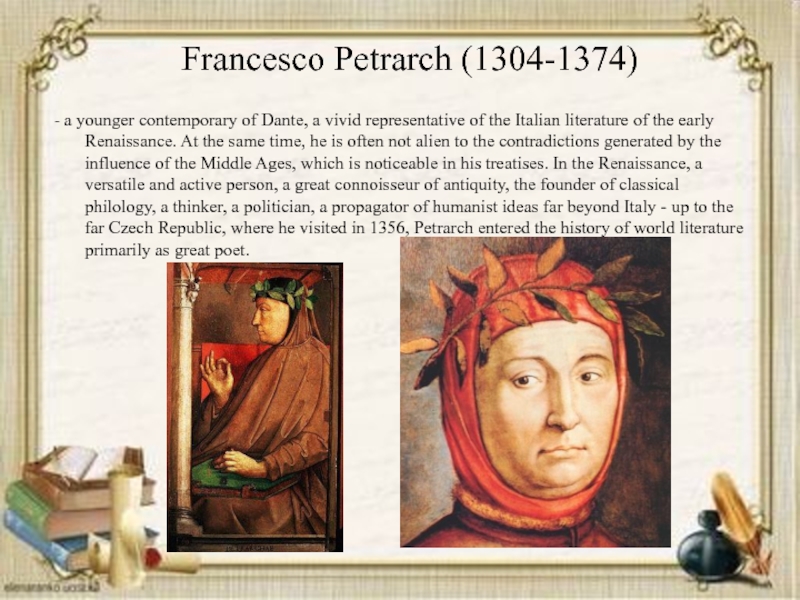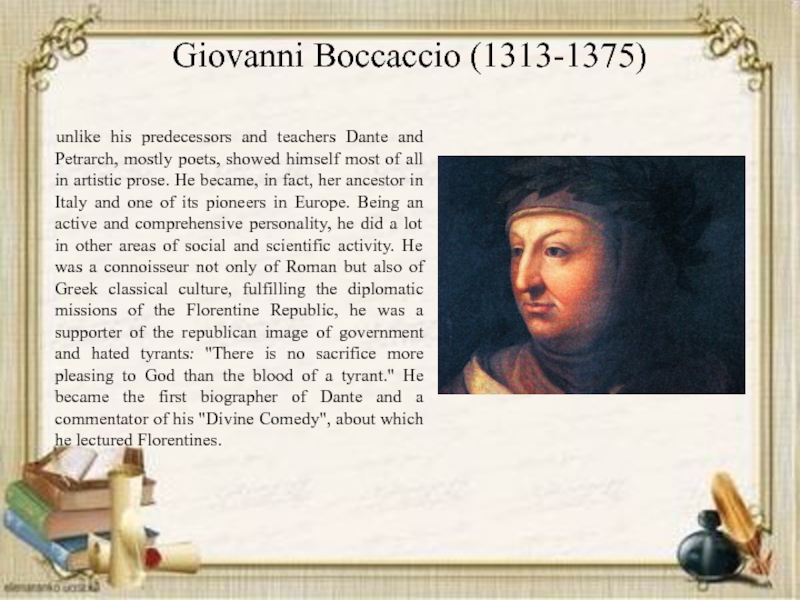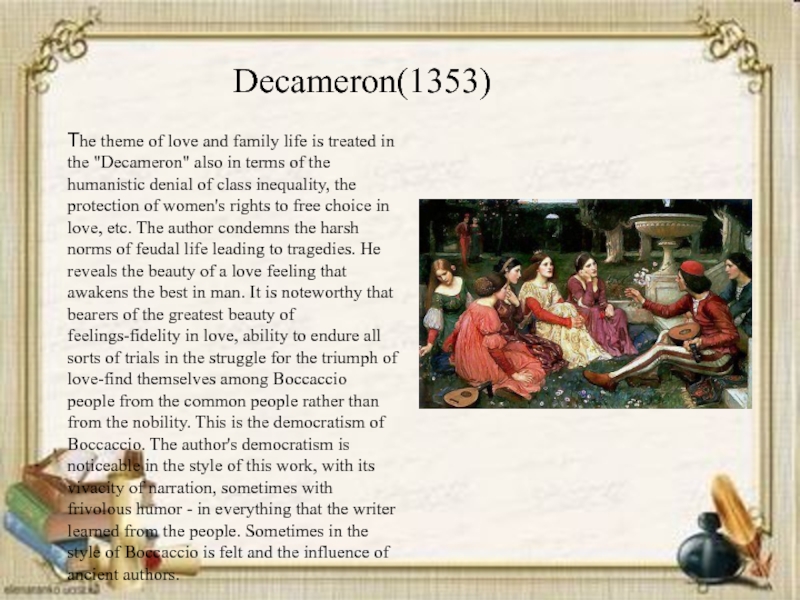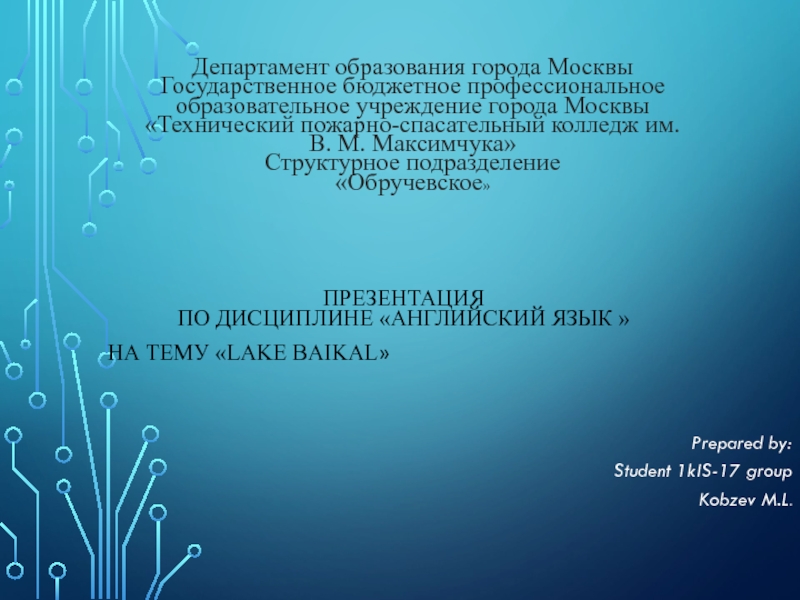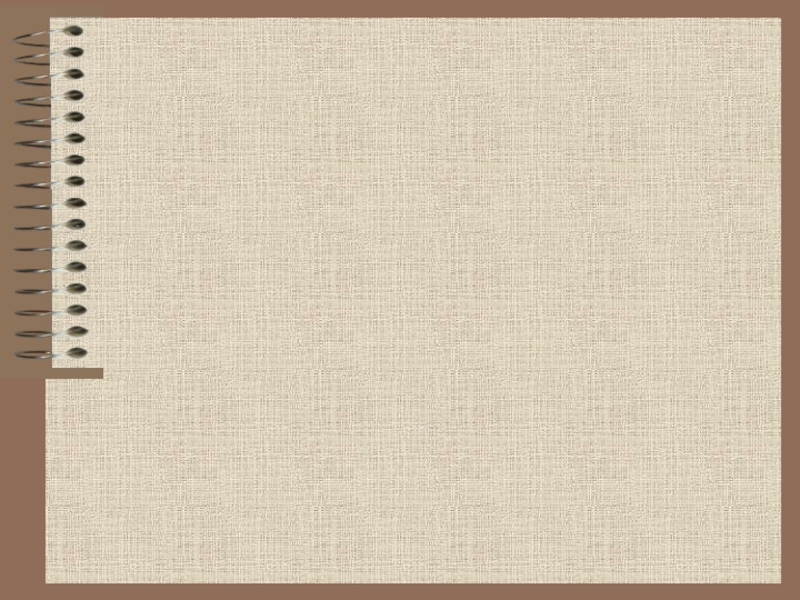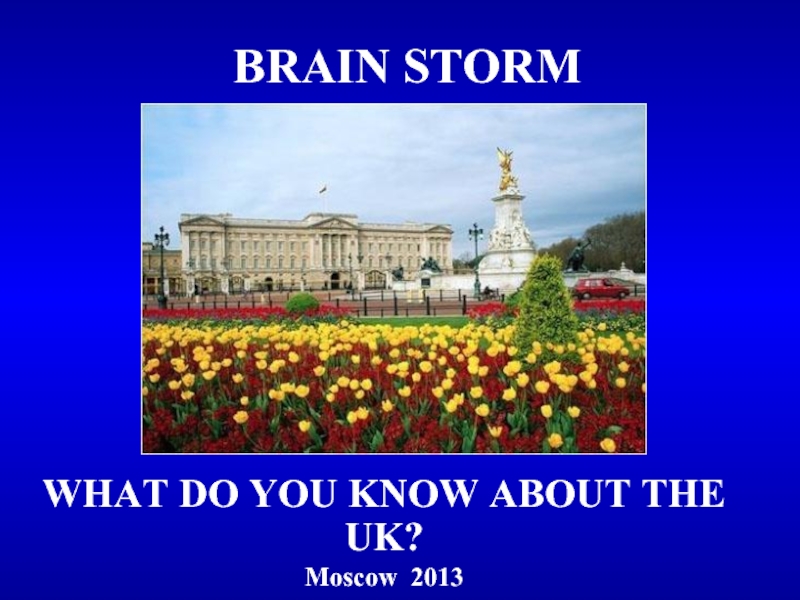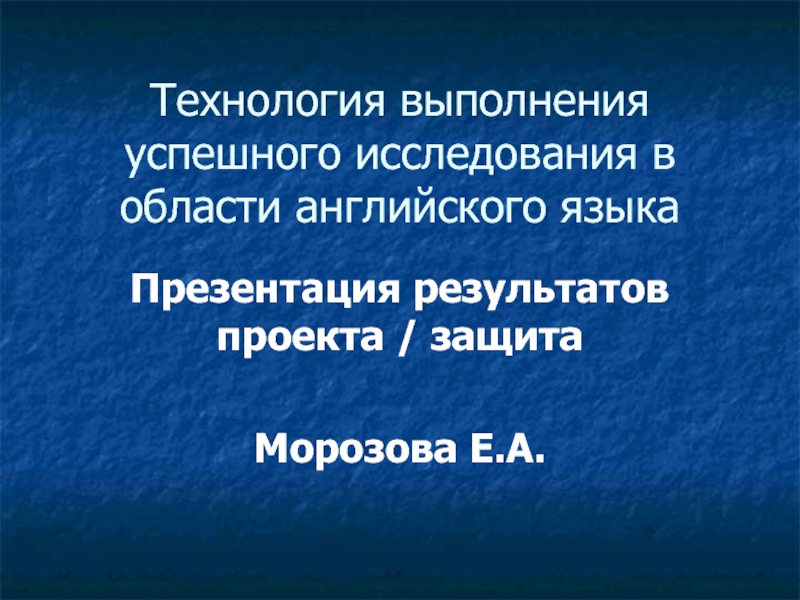- Главная
- Разное
- Дизайн
- Бизнес и предпринимательство
- Аналитика
- Образование
- Развлечения
- Красота и здоровье
- Финансы
- Государство
- Путешествия
- Спорт
- Недвижимость
- Армия
- Графика
- Культурология
- Еда и кулинария
- Лингвистика
- Английский язык
- Астрономия
- Алгебра
- Биология
- География
- Детские презентации
- Информатика
- История
- Литература
- Маркетинг
- Математика
- Медицина
- Менеджмент
- Музыка
- МХК
- Немецкий язык
- ОБЖ
- Обществознание
- Окружающий мир
- Педагогика
- Русский язык
- Технология
- Физика
- Философия
- Химия
- Шаблоны, картинки для презентаций
- Экология
- Экономика
- Юриспруденция
Literature of renaissance period in Italy презентация
Содержание
- 1. Literature of renaissance period in Italy
- 2. Literature of the Renaissance (mid XV -
- 3. Difference between periods The literature of the
- 4. Famous writers Francesco Petrarch (1304-1374) Giovanni Boccaccio (1313-1375) Dante Alighieri (1265-1321)
- 5. Dante Alighieri (1265-1321) "colossal figure", "the last
- 6. "Divine Comedy" (1313-1321 consisting of three parts
- 7. Francesco Petrarch (1304-1374) - a younger
- 8. Giovanni Boccaccio (1313-1375) unlike his
Слайд 1 Ministry of Science and Education of the Republic of Kazakhstan South-Kazakhstan State
Слайд 2Literature of the Renaissance (mid XV - early XVII century., For
Слайд 3Difference between periods
The literature of the Renaissance is distinguished by a
The literature of the Renaissance is characterized by realism, which overcomes the medieval allegorism, which was not completely exhausted in the urban literature. At the same time, Renaissance (revivalist) realism has such features as the titanic character of the heroes, the breadth of the reality show with the reproduction of its contradictions, the introduction into the picture of reality of elements of fantasy and adventure, having a folklore basis, optimism generated by faith in man. All the above-mentioned features of Renaissance realism were manifested with great force in the work of the Titans of the artistic thought of Shakespeare, Cervantes, Rabelais and others.
Слайд 4Famous writers
Francesco Petrarch (1304-1374)
Giovanni Boccaccio (1313-1375)
Dante Alighieri (1265-1321)
Слайд 5Dante Alighieri (1265-1321)
"colossal figure", "the last poet of the Middle Ages
Слайд 6"Divine Comedy" (1313-1321
consisting of three parts - "Hell", "Purgatory" and "Paradise",
Слайд 7Francesco Petrarch (1304-1374)
- a younger contemporary of Dante, a vivid representative
Слайд 8Giovanni Boccaccio (1313-1375)
unlike his predecessors and teachers Dante and Petrarch, mostly
Слайд 9
The theme of love and family life is treated in the "Decameron" also in terms of the humanistic denial of class inequality, the protection of women's rights to free choice in love, etc. The author condemns the harsh norms of feudal life leading to tragedies. He reveals the beauty of a love feeling that awakens the best in man. It is noteworthy that bearers of the greatest beauty of feelings-fidelity in love, ability to endure all sorts of trials in the struggle for the triumph of love-find themselves among Boccaccio people from the common people rather than from the nobility. This is the democratism of Boccaccio. The author's democratism is noticeable in the style of this work, with its vivacity of narration, sometimes with frivolous humor - in everything that the writer learned from the people. Sometimes in the style of Boccaccio is felt and the influence of ancient authors.
